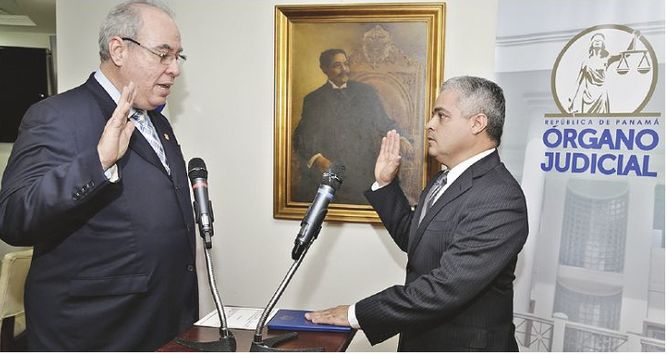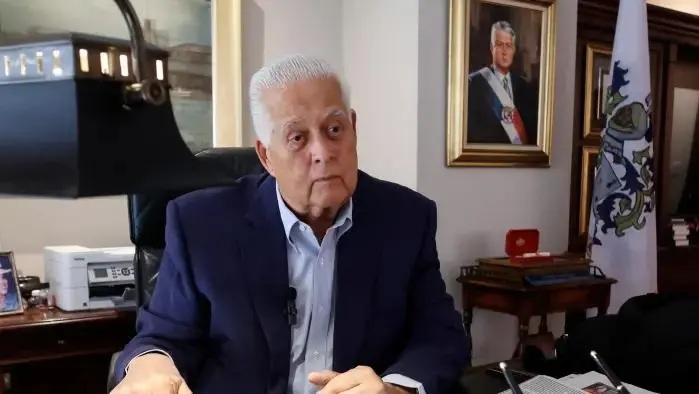MEDIA WATCH: Whenyour words come back to bite you

BETWEEN 2005 and 2006, when he did not even imagine that he would become magistrate of the Supreme Court of Justice (CSJ), Hernán De León, now president in charge of the highest court, pleaded to initiate “a true ” crusade against corruption and impunity, and invited the nation to reflect on the “minimum standards ” of conduct that judicial officers must comply with writes La Prensa
De León who arrived at the Court in January 2012 blamed corruption for being “the cause of the absence of a true Rule of Law in the country “, and warned that the scourge is one of the main causes of the low efficiency and competitiveness in Panama. “You have to legislate to limit privileges, to speed up political trials, to sanction the influence peddling and the conflict of interests “, he sustained.
His proposals were recorded in an opinion article published in this newspaper on May 8, 2005. “We are not facing, at a national level, a situation like the one that existed at the time of the dictatorship; we are in the midst of corruption and the only way to fight and annihilate it is by attacking it head-on, not creating ghost, show bad corruption is, but how good it is denounced and made public, even if it is with stratagems
 De León is today in the eye of the storm, after the Attorney General of the Nation, Kenia Porcell, revealed he visited her in her office to inform her that they were going to “knock down”, the wiretapping case that is followed by former President Ricardo Martinelli and that he had been recorded, a fact that he later denied through a statement and in an interview on TVN.
De León is today in the eye of the storm, after the Attorney General of the Nation, Kenia Porcell, revealed he visited her in her office to inform her that they were going to “knock down”, the wiretapping case that is followed by former President Ricardo Martinelli and that he had been recorded, a fact that he later denied through a statement and in an interview on TVN.
In March 2006, in another writing, he considered that one had to look for “greater perfection, transparency, and development of judicial independence. “
“We are of the criterion that we must rescue the trust that citizens must have in their system of
justice, with an effective, and impartial administration of justice, which helps to strengthen and consolidate the democratic foundations of our society, “he wrote.
He also expressed the view that the judicial servants had to comply “zealously” with “minimum standards of conduct, “so that their duty transcends the function of administering or interpreting the law. “The objective is to clearly convey the idea that judges are not above the law and are the first called to respect and fulfill it, “he warned.





